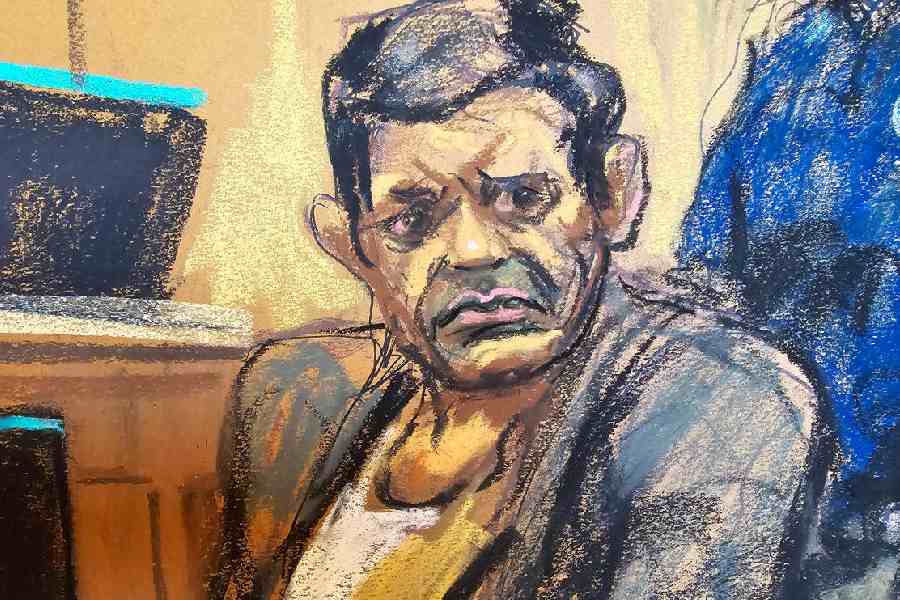Calcutta, Dec. 3 :
Calcutta, Dec. 3:
Academicians are pitching in to save a rare collection of Indian folklore gathered over the years by Sankar Sengupta, a folklorist who died unsung at age 56.
They are planning to open a study centre at Sengupta's residence at 74, Mahatma Gandhi Road. Sengupta, who was not even a graduate, spent the best part of his life studying Bengali and Indian folklore. He died on October 15, 1989.
Sengupta received an honorary doctorate from the University of Bucharest, in Romania, in 1969 and the Rabindra Smriti Purashkar in 1971. He was editor of Folklore, the only English monthly devoted to Indian folklore. He was the only full-time Indian folklorist and was honorary general secretary and director of research of the Indian Folklore Society. He was also director of the Monograph Association of India, and was honorary general secretary of the Rashtrabhasha Prachar Samity, West Bengal.
He organised the All India Folklore Conference in Calcutta in 1964, in which national and international scholars participated. He authored about 25 books on the subject, all of which are rarities. Sengupta's collection includes about 1,500 journals and about 2,500 books exclusively on the subject.
All these are crammed in his eight-ft-by-ten-ft study, where the centre will open.
Earlier, few students chose to research folklore because of the dearth of material.
The enthusiastic ones would hunt out Sengupta's address and managed to smuggle out some of his books for research work. Sadly, they never returned the books and, thereby, many rare books have been lost.
In 1990, when a group of Indology students went to Sengupta's residence, they were amazed to see his huge collection of material on Indian folklore. They studied them and copied some of the rare books on microfilm. They gave a copy to Sengupta's wife, Geeta. The film, covered with fungi, now lies in a corner of the library.
Academicians started taking an interest in his collection after a special paper was introduced on 'oral tradition and folk literature' in MA Part-II in Bengali at Jadavpur University. As a special paper, it was optional, but it generated a lot of interest among students, who opted for the paper in large numbers. Teachers awoke to the fact that material on the subject was unavailable and decided to launch a hunt.
University teachers opened a study centre - the Folklorist Education and Research Institute - at the university on August 3 last year, to study Indian folklore, with particular emphasis on Bengali folklore.
'But we soon realised that mere discourses and lectures on the subject were not enough', said Achintya Biswas, a professor of Bengali at Jadavpur University, who heads the university study centre.
'I realised there was not enough study material and I also needed some original works', added Biswas.
While he looked around, one of his students told him about Sankar Sengupta. 'I jumped at the idea and contacted Sengupta's wife, who was extremely caring and cooperative', he added.
'When they approached me for the books and told me that they wanted to start a study centre in his study, I agreed immediately', said Geeta.
She vacated the study, and students of Jadavpur University sorted, labelled and numbered the books. A photocopying machine will be installed in the room.
Sengupta's son, Mayukh, who is a final-year student at the National Institute of Fashion Technology in New Delhi, seems to be excited about the project.
'Its wonderful!', exclaimed Mayukh. He does not seem to mind the fact that university students will keep knocking at their door.
'I feel proud about my father. It's a wonderful feeling when I see students of my age handling my father's books so carefully, though I neglected his collection for so long', Mayukh said.
Most of the books and journals are in a bad shape and some of them have already been destroyed by borers. But, most academicians feel the collection is invaluable for research scholars.
'Now I can at least refer my students to the study centre', said Ratnabali Chatterjee, a professor of History at Calcutta University.
'I am now encouraging my students to do research work on the subject because more material is available,' added Chatterjee.
 Monday, 16 February 2026
Monday, 16 February 2026








